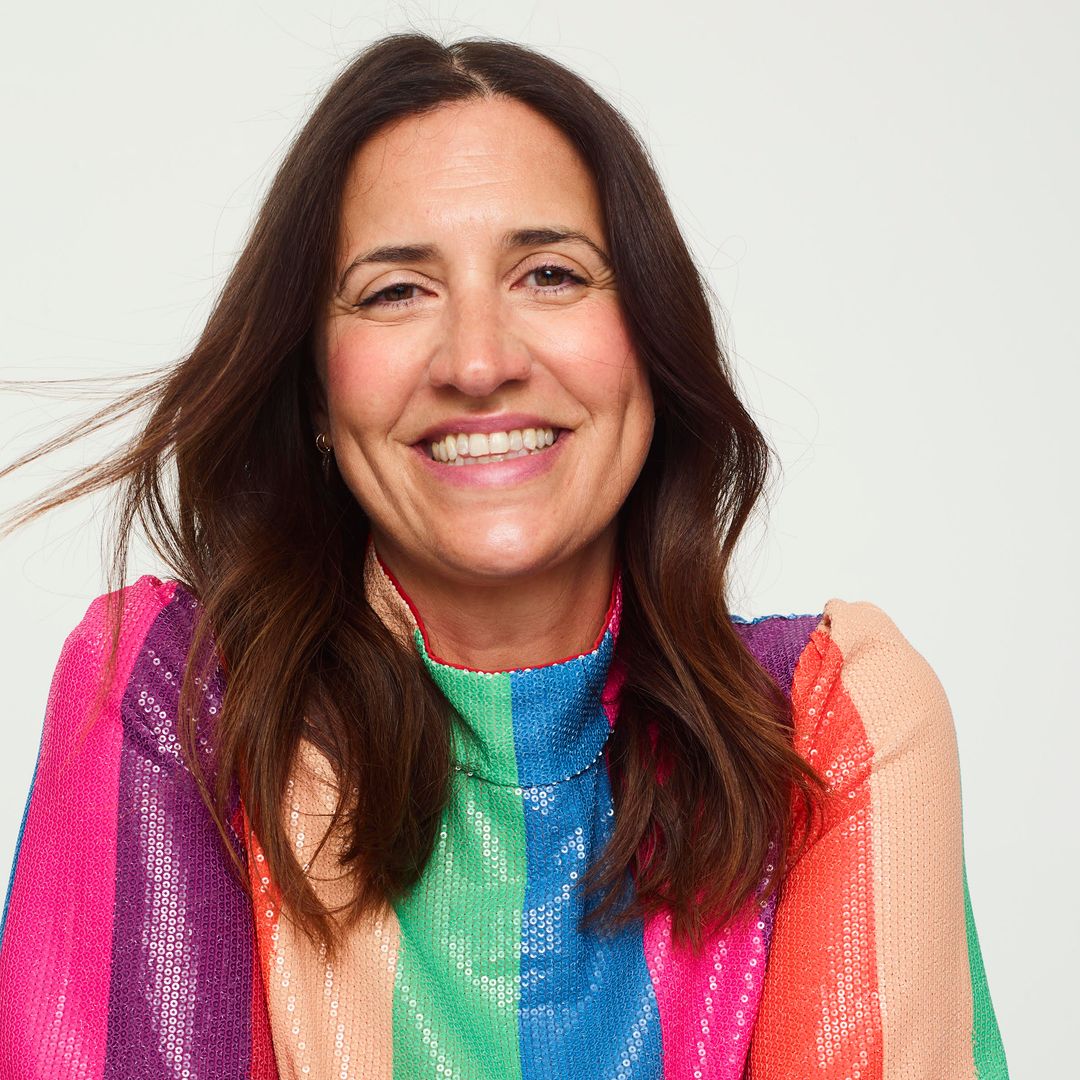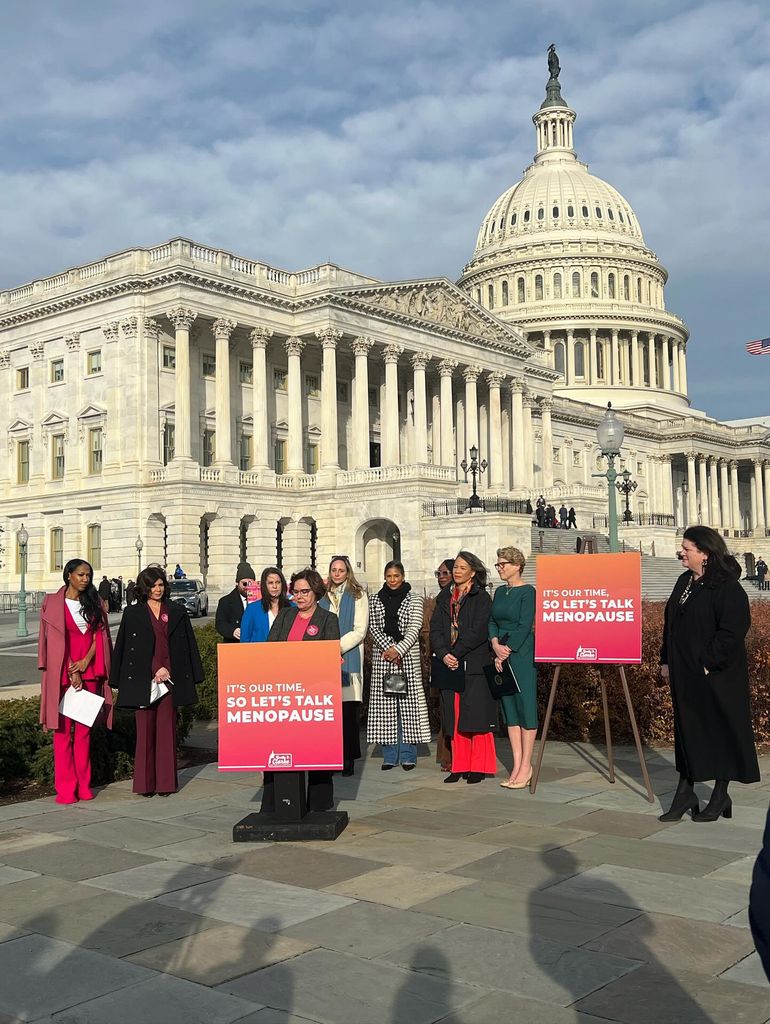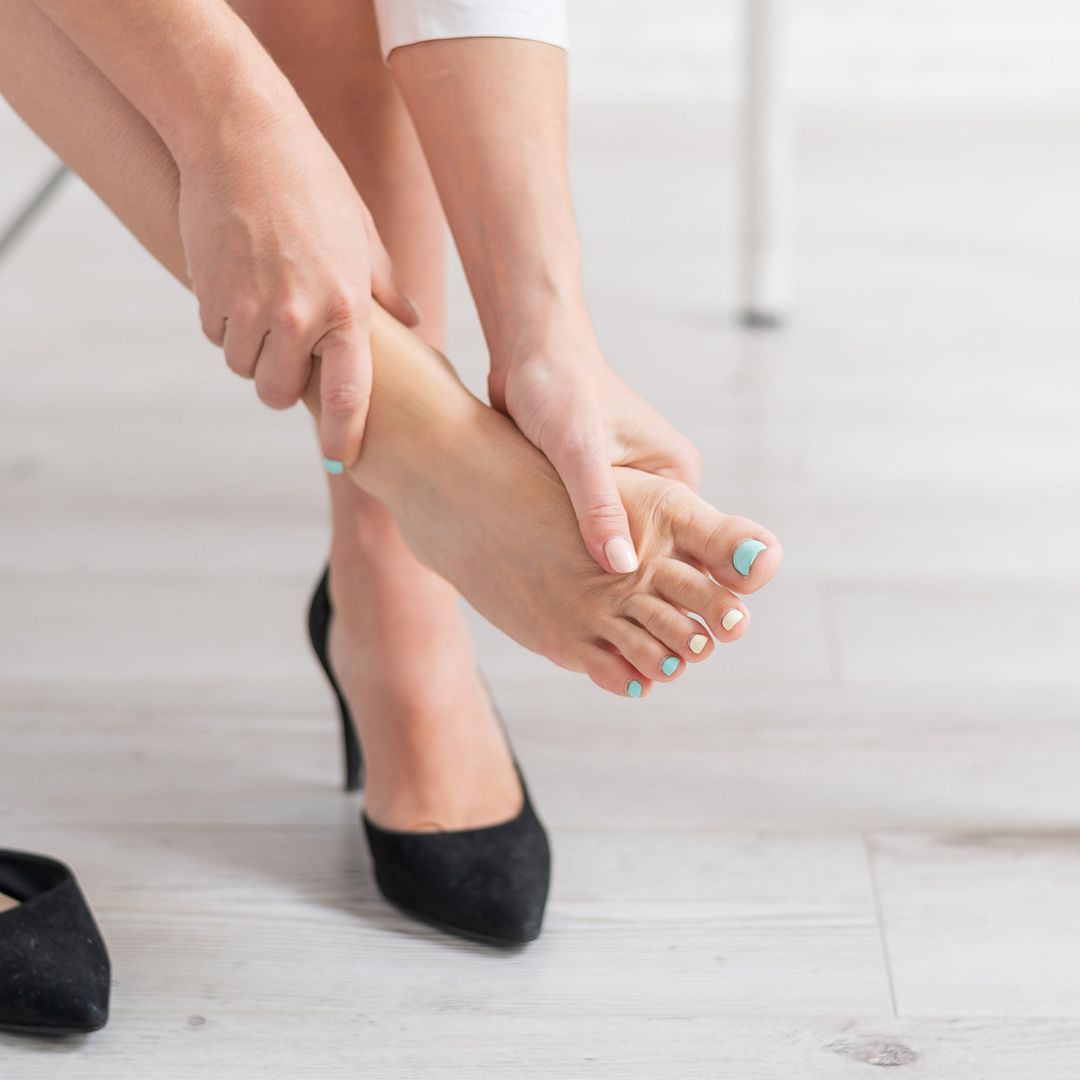Today marked a huge new milestone for the healthcare and wellbeing of American menopausal women thanks to the announcement of the new Menopause and Equity Act of 2023.
Just last month, President Joe Biden announced the first-ever White House Initiative on Women's Health Research and this is another welcome step forward in the future of women’s healthcare.
Until now, the significant impact that menopause can have on women's lives has not been recognized by the American healthcare system. And with so many symptoms that are often misdiagnosed, menopausal women can often slip through the healthcare net and get the wrong treatment and care during what can be an extremely challenging time.
Led by HELLO!’s non-profit charity partner, Let's Talk Menopause and Congresswomen Clarke and Lesko, the act is set to make room for much needed improvements in education, research and healthcare so that women from all backgrounds and all walks of life can feel supported during menopause.
“The Menopause Research and Equity Act is not just legislation; it's a validation of millions of women's experiences,” explains TV Host and Let’s Talk Menopause Board Member and Ambassador Tamsen Fadal. “It’s a movement towards a society where the transition of menopause is met with open dialogue, support, and the care it deserves."
Menopausal symptoms are wide and varied and not just limited to hot flashes. Depression, anxiety, urinary tract infections, joint pain and heart palpitations are just a few of the huge array of symptoms that are often misdiagnosed due to lack of education.
"Let's Talk Menopause was born out of a need to bring light to the menopause journey—a phase that every woman experiences yet often navigates in silence.” explains Donna Klassen, co-founder of Let’s Talk Menopause. “The Menopause Research and Equity Act is the next step in the cause we've dedicated ourselves to. It's about time we normalize menopause, equipping women with the resources and support they need to embrace this phase with confidence and pride."
The legislation marks a commitment to reallocate funding for investment in research and studies centering on menopause. And one area that requires much investment is mental health during menopause. According to Let’s Talk Menopause, women who have never experienced depression are two to four times more likely to experience a depressive episode during the menopause transition.
“Understanding menopause's impact on mental health is as crucial as addressing its physical symptoms.” explains Dr Judith Joseph MD, MBA Board Certified Psychiatrist. “The Menopause Research and Equity Act brings this vital aspect to light, advocating for comprehensive care that encompasses both physical health and mental health issues in Menopause. It is also important to address the disparities in menopause care in black women because they are undertreated yet experience more severe menopause symptoms."
Low estrogen levels after menopause can also cause many long-term health risks that are often missed or not addressed properly. These include cardiovascular issues that can lead to heart attacks and strokes, bone health issues such as osteoporosis and osteopenia and vaginal and sexual health complications like UTI’s.
"This act represents a monumental shift in how we approach women's health, particularly during menopause,” explains Robin Noble, Medical Director at Intermed and Chief Medical Advisor at Let’s Talk Menopause. “It acknowledges the complexities and varied experiences of menopausal women, paving the way for more nuanced research and healthcare. As a gynecologist deeply invested in this field, I see this as a critical step towards providing women with the comprehensive and empathetic care they deserve at every stage of life."










